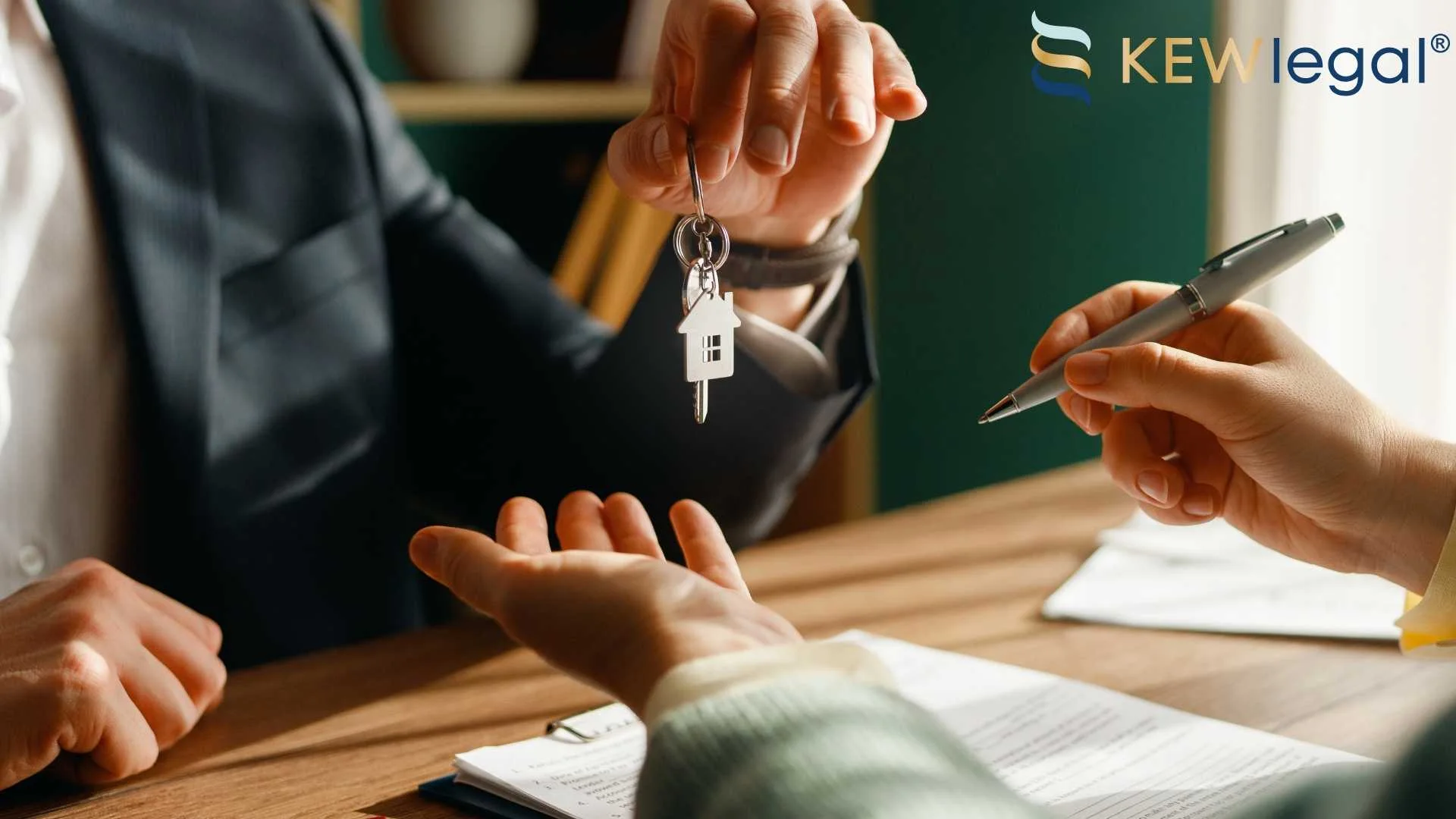Buying a home in Florida feels like securing your own piece of paradise. But between the excitement of finding the perfect property and getting the keys, there is a legal process filled with contracts, disclosures, inspections, title issues, lending rules, and closing requirements that can easily overwhelm first-time and seasoned buyers alike.
Florida sees more than 300,000 sales each year, according to data from Florida Realtors, which means small mistakes happen every day and can cost buyers time and money if they are not prepared.
You are likely weighing advice from real estate agents, lenders, and online articles, trying to piece together a clear path forward. This mixture of sources often creates confusion, and that fragmentation is where costly mistakes are made.
KEW Legal® provides a unique advantage during this process. Our team is known for responsive communication, flat-fee transparency, and a practical, solutions-first approach that helps buyers avoid surprises.

Step 1: The Offer and Contract
The initial purchase agreement is the legally binding blueprint for your entire transaction. In Florida, most residential deals use the “as is” Residential Contract for Sale and Purchase. While “as is” might sound intimidating, it doesn’t mean you’re left without protection, it simply defines how inspections and repairs are handled.
The real risk lies in the details you might overlook. This document dictates critical timelines, financial obligations, and the conditions under which you can walk away with your deposit intact.
Key Clauses Your Attorney Will Review:
Contingencies:
These are your safety nets. Common contingencies include financing, appraisal, and the sale of your current home. An attorney makes sure these are drafted to give you adequate time and clear exit strategies.
Timelines:
The contract specifies strict deadlines for inspections, loan applications, and closing. Missing one of these dates can result in a breach of contract, potentially costing you your deposit.
Personal Property:
What stays and what goes? Your attorney will make sure the contract clearly lists all items included in the sale, from appliances to light fixtures, to prevent disputes on closing day.
Signing a standard contract without a legal review is like going through a minefield blindfolded. An experienced real estate lawyer reviews, revises, and negotiates the contract on your behalf, transforming it from a source of risk into a shield that protects your interests from the very beginning.
Step 2: Due Diligence
The period after the contract is signed is your opportunity to investigate the property thoroughly. This due diligence phase is arguably the most critical part of the process, as it’s your chance to uncover any hidden issues before the purchase is final.
The Home Inspection
Your inspector will provide a detailed report on the home’s condition. If significant issues are found, you have several options. An attorney can be invaluable here, helping you:
- Negotiate with the seller for repairs.
- Request a price reduction or credit at closing.
- Determine if the issues are significant enough to legally terminate the contract and secure the return of your deposit.
The Title Search and Survey
While the home inspection checks the physical health of the property, the title search examines its legal health. Research shows that title defects are a common source of legal disputes in Florida real estate. A thorough title search, reviewed by your attorney, uncovers potential problems like:
- Unpaid property taxes or contractor liens.
- Undisclosed heirs who may have a claim to the property.
- Boundary disputes or easements that could restrict how you use the land.
Step 3: Contingencies and Financing Hurdles
Once due diligence is complete, the focus shifts to satisfying the contingencies outlined in your contract. The financing contingency is paramount for most buyers. This clause typically gives you a set period to secure a loan commitment from a lender.
If you’re unable to get financing within that timeframe, this contingency allows you to cancel the contract and get your deposit back. However, the language must be precise.
Your legal counsel will review your loan commitment to make sure it doesn’t contain unfavorable terms and aligns with the contract’s requirements, protecting your earnest money deposit from forfeiture.
Similarly, an appraisal contingency protects you if the home appraises for less than the purchase price, giving you the leverage to renegotiate or walk away.
Step 4: Preparing for Closing
As the closing date approaches, a flurry of documents will require your attention. The most important of these is the Closing Disclosure (CD), which you’ll receive from your lender at least three days before closing.
This document itemizes all the final costs, including your loan amount, interest rate, closing fees, and the cash you need to bring to the closing table.
Your attorney will meticulously review the CD, comparing it against your Loan Estimate to catch any discrepancies or junk fees. They also coordinate with the title company to review the final settlement statement, deed, and other closing paperwork to confirm everything is accurate and legally sound.
This final review is a vital protection against errors that could have long-term financial consequences.
For buyers who cannot attend the closing in person, a Power of Attorney (POA) can be an important tool. This legal document authorizes someone else to sign the closing documents on your behalf. Preparing a POA requires legal precision to be valid, and your attorney can make sure it’s drafted correctly for a smooth remote closing.
Step 5: Closing Day and Beyond
On closing day, you’ll sign the final paperwork, the funds will be transferred, and you’ll receive the keys to your new home. But the legal journey doesn’t end there.
After closing, your attorney confirms that the new deed is properly recorded with the county, officially transferring ownership to you. They will also guide you on important next steps, such as applying for Florida’s Homestead Exemption, which can provide significant property tax savings.
Should any issues arise after you move in, such as an undisclosed defect that the seller knew about, you may have legal recourse. Having an established relationship with a firm that offers comprehensive legal litigation solutions makes sure you have immediate support to enforce your rights.
Why a Real Estate Attorney is Your Most Important Asset in Florida
An important piece of information many homebuyers don’t realize is that Florida does not legally require you to hire an attorney for a real estate closing. This fact leads many to question if the expense is necessary. They wonder, “Isn’t the title company enough?”
While title companies play an essential administrative role, they cannot provide legal advice. Their primary function is to issue title insurance and handle the closing paperwork. They do not represent your interests. Their loyalty is to the transaction itself, not to you as the buyer.
Given that breach of contract and seller non-disclosure are among the most frequent legal disputes in Florida real estate, proceeding without your own legal counsel is a significant risk.
An attorney is the only party in the transaction whose sole fiduciary duty is to protect you. They act as your strategist, advocate, and safety net. Deciding when to hire a real estate attorney is one of the most important decisions you’ll make, and the answer is always “as early as possible.”
Your Next Step to a Secure Home Purchase
Going through Florida home purchase requires a dedicated legal partner. By understanding each step and having an experienced advocate on your side, you can move forward with confidence, knowing your interests are protected.
If you are preparing to buy a home in Florida, don’t leave your investment to chance. Contact the experienced team at KEW® Legal. Our real estate lawyers are ready to provide the clear and efficient counsel you need to allow for a smooth journey from offer to closing.
Schedule a consultation today to discuss how we can protect your interests.

